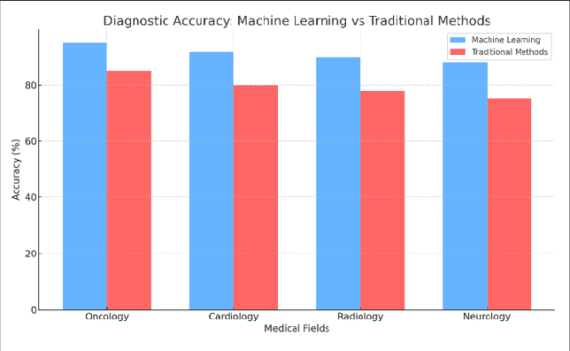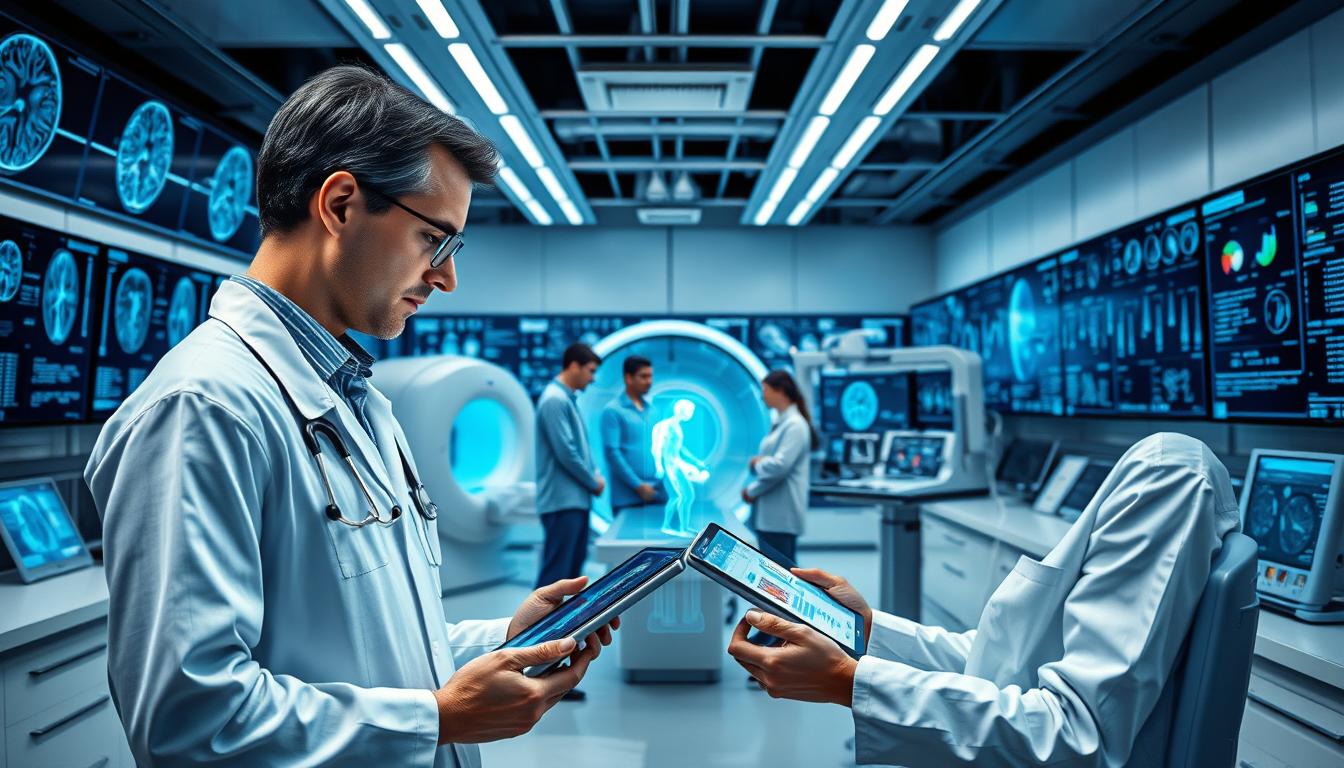The Future of Diagnosing Diseases: AI as a Doctor’s Best Friend?
Imagine walking into a doctor’s office, getting a scan, and within seconds, an AI system flags potential concerns—something even an experienced doctor might have missed. It’s not science fiction. It’s happening right now.
AI-powered healthcare tools are making medical diagnoses faster, more accurate, and accessible like never before. But here’s the key: Artificial Intelligence isn’t replacing doctors—it’s making them better. The real challenge is figuring out how to balance AI’s incredible data-processing speed with human expertise, intuition, and care.
How AI is Helping, Not Replacing, Doctors
There’s been a lot of talk about AI taking over jobs, but in medicine, the opposite is happening. Instead of replacing doctors, AI is acting as a second set of eyes, helping them detect diseases early and reduce errors.
🔹 Faster Diagnoses: AI can compare a single scan against millions of past cases in seconds.
🔹 Greater Accuracy: AI has shown higher success rates in detecting diseases like cancer at early stages.
🔹 Reducing Doctor Burnout: AI handles repetitive tasks, like reviewing hundreds of scans, so doctors can focus on patient care.
This means doctors + Artificial Intelligence = a more efficient, effective, and human-centred healthcare system.
Real Examples: AI in Action
AI in medicine isn’t just theoretical—it’s already saving lives. Here are a few real-world examples:
- Radiology: AI helps detect lung cancer in CT scans up to 40% faster than traditional methods.
- Pathology: AI-powered systems review tissue samples, catching signs of diseases that even skilled pathologists might miss.
- Cardiology: AI-assisted ECGs now detect irregular heart rhythms with 98% accuracy.
- Dermatology: AI apps analyze skin moles and identify potential melanoma with a 95% success rate—sometimes better than dermatologists.

What’s Holding AI Back? The Challenges Ahead
While AI’s potential in medicine is exciting, it’s not perfect. There are still major challenges to overcome:
- Integration Issues – Many hospitals still use outdated systems that don’t work well with AI tools.
- High Costs – AI-powered diagnostic tools can be expensive, making it harder for smaller clinics to adopt them.
- Trust & Ethics – Patients (and even some doctors) worry about how AI makes decisions and whether it could replace human judgment.
- Data Privacy Concerns – AI relies on massive amounts of medical data, raising questions about patient privacy and security.
These are real concerns, but they don’t mean AI is doomed. They just mean we need to be careful, strategic, and ethical in how we integrate AI into medicine.
The Future: AI & Human Doctors Working Together
So, what’s next? Over the next decade, AI will become an even bigger part of healthcare. Here’s what we might see:
- Personalized Medicine – AI could analyze a patient’s genetics and history to create custom treatment plans.
- At-Home AI Health Tools – Devices could scan for health problems and send real-time updates to doctors.
- AI-Assisted Doctor Visits – AI might listen in on patient-doctor conversations and automatically create medical notes, reducing paperwork.
But here’s the most important part: Doctors won’t be replaced. The best future for AI in medicine is one where technology supports human expertise, not replaces it.

Final Thoughts: AI in Medicine is Inevitable, But It Needs Balance
AI isn’t here to replace doctors—it’s here to help them make better decisions, faster. The real challenge is finding the right balance between technology and human judgment
Hospitals that embrace AI wisely are already seeing faster diagnoses, improved patient care, and better outcomes. But to make AI truly work in medicine, we need to ensure it’s ethical, affordable, and transparent.
So, the next time you hear about AI in medicine, don’t think of it as a robot taking over healthcare. Think of it as a powerful new tool that’s changing the way we fight diseases—and giving doctors a helping hand when they need it most.
